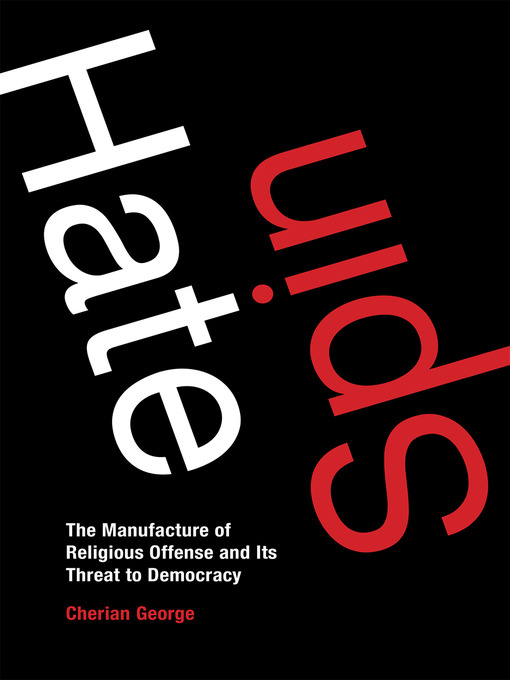In the United States, elements of the religious right fuel fears of an existential Islamic threat, spreading anti-Muslim rhetoric into mainstream politics. In Indonesia, Muslim absolutists urge suppression of churches and minority sects, fostering a climate of rising intolerance. In India, Narendra Modi's radical supporters instigate communal riots and academic censorship in pursuit of their Hindu nationalist vision. Outbreaks of religious intolerance are usually assumed to be visceral and spontaneous. But in Hate Spin, Cherian George shows that they often involve sophisticated campaigns manufactured by political opportunists to mobilize supporters and marginalize opponents. Right-wing networks orchestrate the giving of offense and the taking of offense as instruments of identity politics, exploiting democratic space to promote agendas that undermine democratic values.
George calls this strategy “hate spin”—a double-sided technique that combines hate speech (incitement through vilification) with manufactured offense-taking (the performing of righteous indignation). It is deployed in societies as diverse as Buddhist Myanmar and Orthodox Christian Russia. George looks at the world's three largest democracies, where intolerant groups within India's Hindu right, America's Christian right, and Indonesia's Muslim right are all accomplished users of hate spin. He also shows how the Internet and Google have opened up new opportunities for cross-border hate spin.
George argues that governments must protect vulnerable communities by prohibiting calls to action that lead directly to discrimination and violence. But laws that try to protect believers' feelings against all provocative expression invariably backfire. They arm hate spin agents' offense-taking campaigns with legal ammunition. Anti-discrimination laws and a commitment to religious equality will protect communities more meaningfully than misguided attempts to insulate them from insult.


